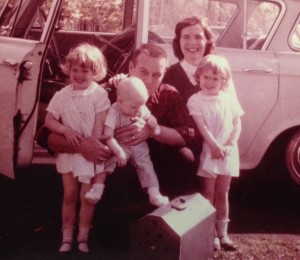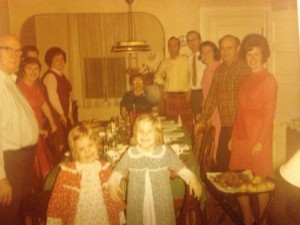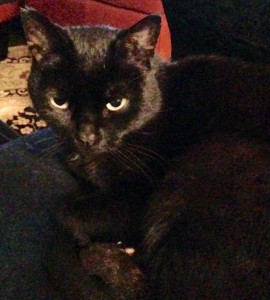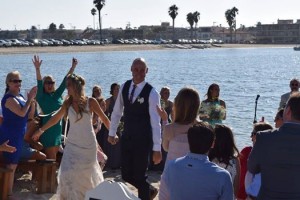
Sounds of Two Thousand Seventeen
Crash, crash, boom, boom, boom. “Should we donate this or does it go in the dumpster?”
To a large degree, 2017 has been about moving. Seventeen years in a home with six children, so much has accumulated. The 30-yard dumpster, standing in the driveway in the old house in Amherst, was filled rather quickly with many items. This is including a grill that broke two weeks prior to our move, and a hot tub that had serviced every achy joint for 17 years, but now had a leak.
Moving a hot tub from the 2nd story deck to a dumpster: “wher wher wher, whoosh, thwump, scree, boom.” Randy sawzalled that thing to pieces, threw them off the deck, dragged them up a ladder, and tipped each piece off the edge and into the dumpster. One phase of life to be hauled away. I took many, many trips to Goodwill. “May I have a receipt?”

Randy and I had found a piece of land next to our church. For six months while the house was being built, we were in an apartment in a nearby town. A complex that permits dogs over 30 pounds. Therefore, every person living in Hillsborough County NH who needs to rent and owns a dog lives with us. “Ar roof, ar roof. AR ROOF!” Moses cannot figure out what all these dogs are doing on his property.
Hmmmm. “That one. I like that light. Yes, Me too.” Bang, bang, vip. Nails hammered, paint applied. Much of building a home is decision making and observing. We had weekly trips to Lowes and to New Boston to observe the progress. Ground breaking, foundation pouring, framing, roofing, selecting hinges, doors, paint color. Our process was so much easier than many people describe. We agreed on just about everything and we were in great hands. Our general contractor is an elder in the church, he and our electrician have been part of the church for forever.
Mid-summer on a beautiful Sunday in July, we held my parents memorial service at the little church in Belgrade Lakes. Friends and family traveled from homes on the lake in Maine, Massachusetts, New Hampshire, New York, Florida and California. Murmured sounds of condolences, of thank you for coming, my parent’s favorite hymns sung—How Great Though Art and Lord You Have Come to the Lakeshore.
Fellowship and fun stories shared afterwards at the house. Memories of two great lives. Feet dipped in the cool water. But for anyone present, the most distinct sound of the day: it stays with me, the sound of the United States flag snapping as the Army National Guard troops prepare to fold it and hand it to my sister in military honors for our father. Taps played.
September 30th, Bend Oregon. Hair dryers blew, dresses zipped, cameras clicked, Florida Georgia Line’s “Holy Holy Holy” played and with glasses clinking we celebrated Lauren’s marriage to Michael LaCroix.
Then, smack in the middle of October, “YAAAAAGH! Yaaagh.” Inside our camp on Belgrade Lakes we heard screams of pain. “Oh no, oh no, oh no,” I say while running to the door. Randy lay outside, on the deck in excruciating pain. Quickly turning grey with shock, we covered him with a blanket and waited for paramedics to arrive. More yells of pain as he was moved to a stretcher and onto the ambulance.
Falling from a ladder after putting the cover on the chimney, one and ½ hours from being closed for the season, Randy fractured his femur in three long pieces, his foot in two places, elbow, wrist, and one vertebrae. The blessings? No hit to his head, no spinal cord injury, friends and family in prayer and in action.
A great orthopedic surgeon in Augusta, Maine! Ten days in a beautiful hospital with a great gift shop. (Randy’s mother has said the best shops are in hospitals!) Kind and concerned visitors. A ramp built into the new house by a loving friend. Recovery continues but Randy has graduated from hospital bed and walker to a cane and swim therapy. “Click, step, step. Click, step, step.”
Our move to the new house was one month after the fall. My responsibilities different than planned, I found myself in Lowes trying to speak a language attached primarily to the Y chromosome. Or at least it felt that way. One moment of feeling defeated was when I could not figure out how to translate “trim kit” to the kind, but ignorant, employee at Lowes who had floated from hardware to plumbing for the day. 45 minutes later I purchased the wrong item. “Arrrgh.” Frustration. Randy solved it from his hospital bed online. My hero! “Yay!” And a kiss. You know the sound.
Our new home sits up on a hill, woods behind it, paddock fencing, old rock walls, and horses across the street and next door. I got up early to walk Moses and all was quiet. I scanned the woods with my flashlight and two sets of eyes peered back at me and Moses.
“Deer?” I moved along the rock wall and the eyes came closer. Not deer! Coyote. “Let’s go Moses! We’ll walk later!” Now, after a month I am no longer afraid of the coyote as we are too big. But we hear them. Coyote howls at night. I’ve heard the scamper of mice on a log, three of them chasing to get undercover. The silence of deer in the backyard, deer running when I walk closer. And we’ve heard of the bear and the moose observed by neighbors. I only get spooked when Moses’ tail goes down suddenly as we walk up the hill through the woods. But all is quiet except the sound of wind in the trees. The sound of peace.
This game of sounds did not start with me. Or with Randy. It started in May at a ranch in Three Rivers, California. We were all together as a family for the first time in twelve years. Fourteen of us. Sounds galore. Feet swishing through dry brush, hiking to the largest trees in the world. Murmured conversations of goals, business ideas, dreams of future trips, invented games of billiards.
Around the table—“Hahhahahaha,” laughter, jokes, pots clanking, spoons scraping, meat on the grill sizzling. Thirteen of us singing happy birthday to one sweet little Reagan. Our granddaughter is two years old! A beautiful sound: Reagan calling, “Hi Juju! Where’s Grandy?” On our trip we sang happy birthday three times because, as Uncle Zach said, three times is a charm, and sweet little hands clapping and eyes twinkling are too precious to resist.
And then the game of sounds. Brought to us by Joe and Tori. “We have a game. See if you can guess what this sound is.” And his cell phone produced the sound. All of us listening intently. Zwhoosh, zwhoosh, zwhoosh, zwhoosh. A train? No. Danny yells, “A baby’s heartbeat!” Yes! Sounds of JOY! Tears, hugs, cheers. New Life. Tori and Joe, having a baby! Baby Quinn joined our family December 13th! We are blessed by this growing family.
Christmas is a celebration of new life. God sent his only son to die for us, so that we would have new life, today and everlasting. It all started in a manger, with a star overhead. Can you hear the hymn? O Holy Night, The Stars are brightly shining.




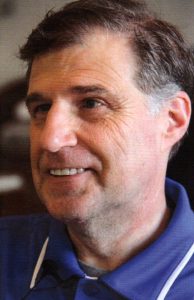
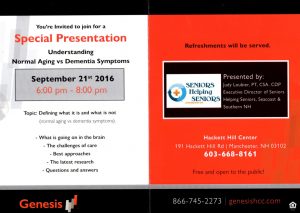
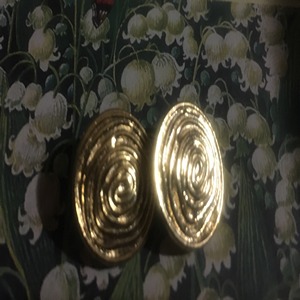 Funny how opening a drawer can make your heart stop. Stumbling on a treasure when you are expecting dust and instead a rattling and a clacking of small items jostling in what was presumed to be an empty drawer, a drawer that has already been opened and emptied. I had pulled out the slightly yellowed camisoles, sorting some to keep, some to send off to Goodwill, some too old to give away and so thrown away. Though even throwing away an old camisole causes a pause because mom wore it in healthier days. But we cannot keep everything and so, into the trash bag with those.
Funny how opening a drawer can make your heart stop. Stumbling on a treasure when you are expecting dust and instead a rattling and a clacking of small items jostling in what was presumed to be an empty drawer, a drawer that has already been opened and emptied. I had pulled out the slightly yellowed camisoles, sorting some to keep, some to send off to Goodwill, some too old to give away and so thrown away. Though even throwing away an old camisole causes a pause because mom wore it in healthier days. But we cannot keep everything and so, into the trash bag with those.